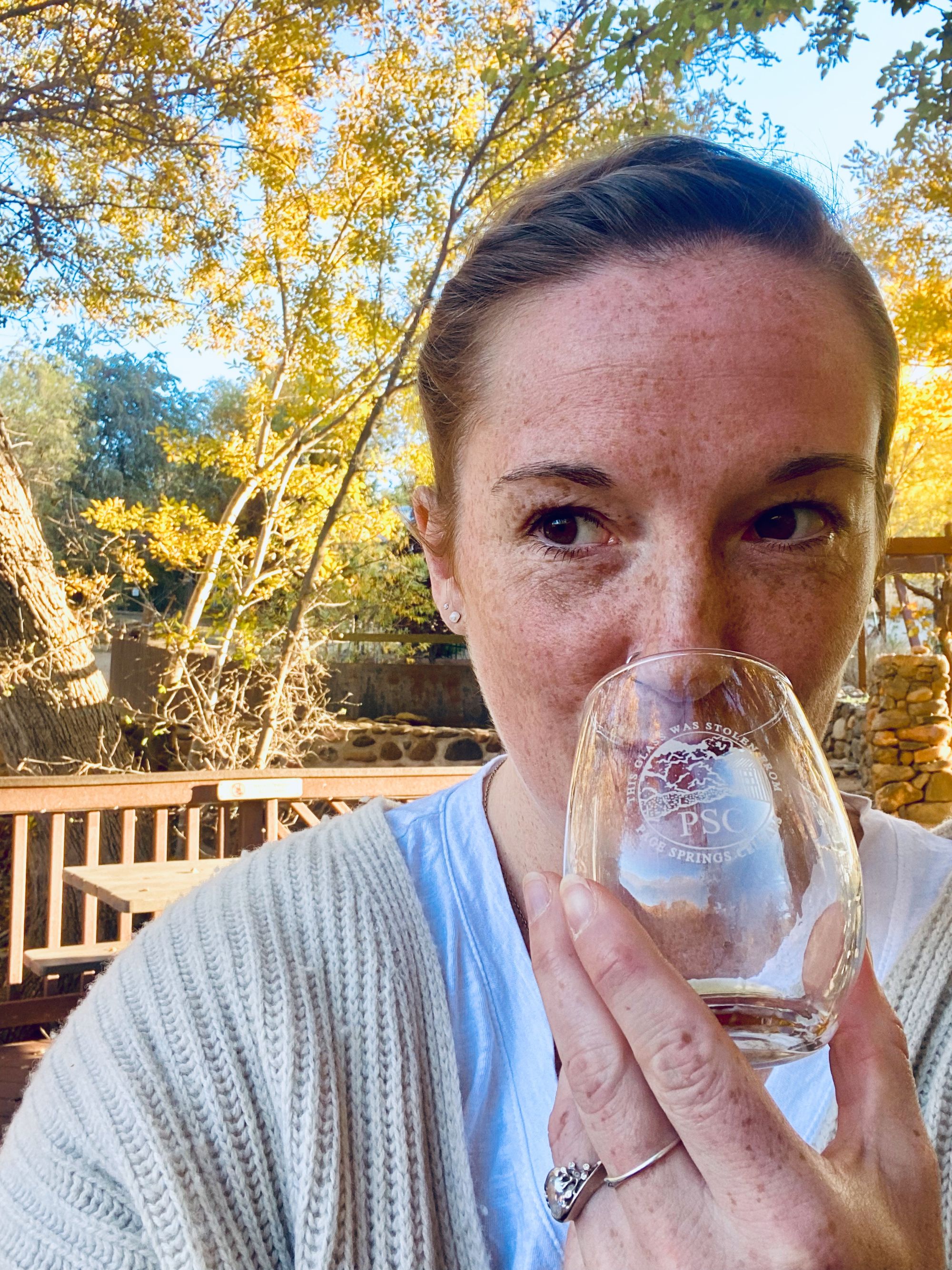Certifying Oneself in Wine
If I smell violets in my pinot and you don’t, COOL. What do you smell? How do you describe it? Isn’t that so COOL and INTERESTING that we have the exact same thing in our hands and yet experience it so differently!

In the latter half of 2022 I had the chance to take some time and try to figure out what I want to be when I grow up.
Spoiler alert: I still don’t know.

But in a happenstance situation - which always seems to be the case - I learned about the CSW (Certified Specialist of Wine) certification.
I was at a wine bar in Arizona and chatting up the server who was walking my husband and I through our tastings. She seemed so knowledgable, and I asked if she knew all of this simply through working at the shop. She detailed that, actually, she was currently working through a certification all about the viticulture, production, and best-known regions of wine.
A wine certification that’s not a sommelier course? I needed to know more immediately!
Why? Well, because I like wine (and beer, and whiskey, and gin… the list goes on) and I love pretending that I know about wine. Why not actually learn about it?

What is a Certified Specialist of Wine?
And thus, I promptly went into an internet spiral, learning all I could about the certification, and all the other related ones!
The CSW is a self-paced and self-taught course through the Society of Wine Educators (the SWE). It’s a course designed to teach foundational knowledge of grape varietals, wine-growing regions, winemaking techniques, and viticulture (the branch of agriculture that specifically deals with grapevines).
It is recognized - and apparently highly regarded - in the wine world, and held by folks from all walks of industries, including: university instructors, importers/distributors, retailers and restauranteurs, sommeliers and bartenders, and simple wine enthusiasts, like myself.
The study guide and associated workbook (which can only be purchased on Amazon) are broken down into 4 main sections: Wine Defined, Viticulture and Enology, Wine Labels, Laws, and Regions, and Wine Consumption and Service.
To achieve the certification, you have to sit a 1-hour, 100-question exam, and pass with a 75% or higher score.
This didn’t sound too terrible, as I’ve previously studied and sat through the self-paced Project Management Professional certification and I’m positive nothing can be more annoying than that!
Anyway, it "didn’t sound too terrible"… until I read more about it and realized the exam is actually quite difficult. Apparently the average passing rate is 50% for a first attempt!
And those 100 questions? They’re randomly pulled from a pool of around 5000+ questions. Woof, that’s a lot of knowledge to pull from your brain very quickly!

How is this different than a Sommelier?
That’s a great question - and the first one I asked too!
For those who don't pretend to be a booze snob on the weekends like I do: a sommelier is a wine steward trained in service and specializing in wine and food pairing. Sounds delicious, eh?
They also go through a certification course (many actually, if they’re trying to be a real Master) through an organization called the Court of Master Sommeliers (CMS). Sounds fancy, am I right? Well, it is. And the higher certifications are freakin' hard.
The difference between a CSW and a CMS is that the CSW is more production, viticulture, and theory based, whereas the CMS is more service based; think food and wine pairings, describing wines to others, wading through what someone says they like versus what they might actually enjoy with dinner.
In practicality this means the CSW is purely theory; I'll sit for 100 questions and then pass or fail. Whereas the CMS cert includes a tasting portion. The testers give you a few different wines and you have to tell them what varietal they are and what region they are from. Again, freakin' hard.
The biggest similarities are that they are both self-paced courses… and they both concern wine.
I would be remiss if I did not relate that there is yet a third wine-related certification called the WSET (Wine & Spirit Education Trust). This aligns more closely to the sommelier certification, and is also service related with a tasting portion on their exam.
Well, I’m not here to do a blind taste test for anyone. I’m an anxious person. I want to study at my own pace, take my certification and run after answering 100 questions thankyouverymuch.

Why in the world am I doing this?
Given that last statement, you might be wondering why I ever decided I wanted to do something like this.
But honestly, the sentiment behind it is exactly why I want to learn.
The more I thought about how much I enjoy trying new things, tasting new flavors, and finding new “likes”, and how much I dislike being forced to describe what I taste or smell in something just to be told I'm wrong, the more I got annoyed.
To me, trying new wines, beers, spirits, food, or whathaveyou should be fun and engaging. If I smell violets in my pinot and you don’t, COOL. What do you smell? How do you describe it? Isn’t that so COOL and INTERESTING that we have the exact same thing in our hands and yet experience it so differently!
So, I’m going to learn the theory behind it all, and I’m going to share this knowledge along the way.
I’m going to use that knowledge to inform, but not dictate to others what they should be experiencing.
Let’s try some new things, figure out what we like and what we don’t like, and maybe have some fun along the way!
Cheers,
Molly